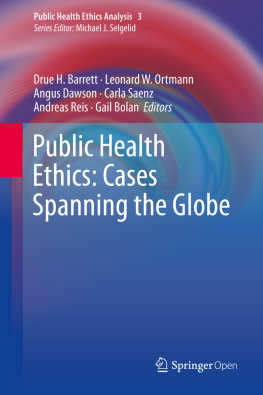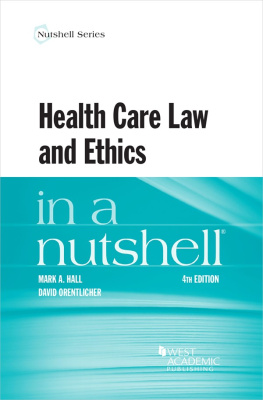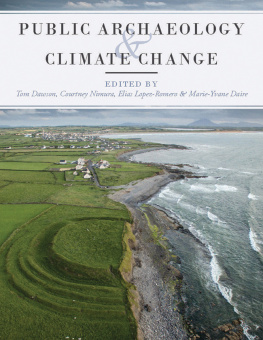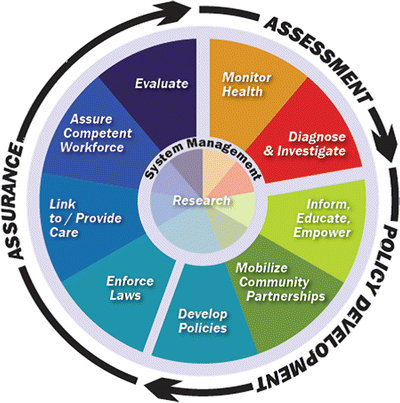1.1 Introduction
Introducing public health ethics poses two special challenges. First, it is a relatively new field that combines public health and practical ethics. Its unfamiliarity requires considerable explanation, yet its scope and emergent qualities make delineation difficult. Moreover, while the early development of public health ethics occurred in a Western context, its reach, like public health itself, has become global. A second challenge, then, is to articulate an approach specific enough to provide clear guidance yet sufficiently flexible and encompassing to adapt to global contexts. Broadly speaking, public health ethics helps guide practical decisions affecting population or community health based on scientific evidence and in accordance with accepted values and standards of right and wrong. In these ways, public health ethics builds on its parent disciplines of public health and ethics. This dual inheritance plays out in the definition the U.S. Centers for Disease Control and Prevention (CDC) offers of public health ethics: A systematic process to clarify, prioritize, and justify possible courses of public health action based on ethical principles, values and beliefs of stakeholders, and scientific and other information (CDC ). Public health ethics shares with other fields of practical and professional ethics both the general theories of ethics and a common store of ethical principles, values, and beliefs. It differs from these other fields largely in the nature of challenges that public health officials typically encounter and in the ethical frameworks it employs to address these challenges. Frameworks provide methodical approaches or procedures that tailor general ethical theories, principles, values, and beliefs to the specific ethical challenges that arise in a particular field. Although no framework is definitive, many are useful, and some are especially effective in particular contexts. This chapter will conclude by setting forth a straightforward, stepwise ethics framework that provides a tool for analyzing the cases in this volume and, more importantly, one that public health practitioners have found useful in a range of contexts. For a public health practitioner, knowing how to employ an ethics framework to address a range of ethical challenges in public healtha know-how that depends on practiceis the ultimate take-home message.
We learn new things more readily when we can relate them to familiar things, and we understand complex things by breaking them into their components. Accordingly, throughout this introductory chapter, we will relate public health ethics to more familiar concepts and better-known related fields, while the immediately following section will explore the components of public health ethics that derive from its parent disciplines of public health and ethics. After describing public healths core activities, goals, and values, we will explain why ethical concepts like the right to health, social justice, and health equity directly follow as central concerns of public health. After defining ethics broadly in everyday terms, we will examine the complementary roles facts and values play in public health. This examination is important because the respective bases of the two parent disciplines differ considerably; public health science rests on the logic of scientific discovery, whereas ethics rests on the logic of right action and good decision making. We will then contrast the more familiar, everyday understanding of morality with the formal discipline of ethics as a prelude to considering three well-known ethical theories relevant to public health. Because both laws and ethical rules establish parameters for public health practice, their similarity and difference need to be clarified. This extended account, first of parent disciplines, then of kindred concepts, and finally of family resemblances between the related fields of clinical ethics, bioethics, and research ethics, will culminate in an effort to characterize what is distinctive about public health ethics.
1.2 Public Health
There are many definitions of public health. They often begin as descriptions of current practice but once established become prescriptions for subsequent practice. It is important, then, to consider definitions, because they shape not only public health practice, but also how we conceive of public health ethics (Dawson and Verweij ) identify two primary meanings of public in public health, each of which they break down into three senses. Public can mean population-wide and refer to (1) the epidemiologically measured health of a population or group, (2) the distribution of health in a population, or (3) the underlying social and environmental conditions impacting everyones health. Public also can mean collectively accomplished and requiring (1) the concerted actions of many people and institutions whether governmental or nongovernmental; (2) the cooperation or involvement of the public, or (3) the publics joint participation to realize the health improvement.
In a practical field like public health, definition often takes the form of enumerating key activities, such as surveillance, sanitation, maintaining food and workplace safety, disease prevention and control, and promoting healthy behavior. The identification of the ten essential services of public health illustrates this enumerative approach (Fig. ). These services fall under three overarching functions of assessment, policy development, and assurance that constitute an integrated cyclic process. The delivery of these services in local, regional, or national public health agencies accordingly defines public health practice. In this schema, research is a distinct practical service but also integral to all public health activities, providing insights and innovative solutions at every point. Public health ethics addresses the entire spectrum of ethical issues that arise in any area of public health practice but especially in those areas where no specific guidelines govern practice.










